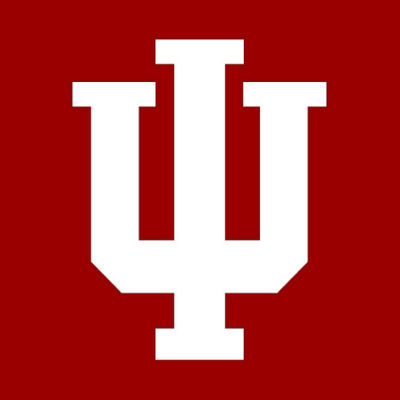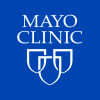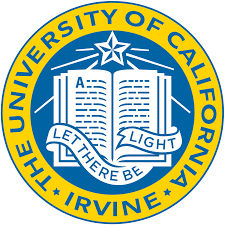预约演示
更新于:2025-05-07
FOLR1 x FOLR2
更新于:2025-05-07
关联
3
项与 FOLR1 x FOLR2 相关的药物作用机制 FOLR1激动剂 [+2] |
最高研发阶段批准上市 |
首次获批国家/地区 美国 |
首次获批日期2021-11-29 |
作用机制 FOLR1激动剂 [+1] |
在研机构- |
在研适应症- |
非在研适应症 |
最高研发阶段无进展 |
首次获批国家/地区- |
首次获批日期1800-01-20 |
作用机制 FOLR1拮抗剂 [+1] |
在研机构- |
在研适应症- |
非在研适应症 |
最高研发阶段无进展 |
首次获批国家/地区- |
首次获批日期1800-01-20 |
19
项与 FOLR1 x FOLR2 相关的临床试验NCT06915727
Pafolacianine for Localization of Pediatric Extracranial Solid Tumors
This phase III trial studies how well pafolacianine works for identifying cancerous lesions in children and adolescent patients with primary solid tumors or solid tumors that have spread from where they first started (primary site) to other places in the body (metastatic). Pafolacianine is a fluorescent imaging agent that targets folate receptors which are overexpressed in many cancers and is used with near infrared (NIR) imaging during surgery to identify tumor cells. NIR uses a special camera that uses wavelengths in the infrared range to visualize and locate the tumor cells that are lit up by the pafolacianine. Giving pafolacianine for NIR imaging may work better than other imaging agents in identifying cancerous lesions in pediatric patients with solid tumors.
开始日期2025-04-15 |
申办/合作机构 |
NCT06511037
The Impact of Pafolacianine Injection for Intraoperative Imaging on Outcomes of Gastrointestinal Cancer Peritoneal Carcinomatosis - a Pilot Study
This is a pilot, single-arm, open label study to evaluate the ability of CYTALUX™ (pafolacianine) to help identify cancerous lesions in subjects with gastrointestinal cancers and peritoneal carcinomatosis during cytoreductive surgery.
开始日期2024-11-13 |
申办/合作机构 |
NCT06434909
An Investigator Sponsored Study to Investigate the Safety and Efficacy of CYTALUX™ (PAFOLACIANINE) INJECTION for the Intraoperative Imaging of Prostate Cancer
This study is being done to compare how much using Cytalux™ (pafolacianine) with NIR (Near InfraRed) fluorescent imaging improves the detection of malignant (growing in an uncontrolled way) tissue in adult subjects undergoing prostatectomy and lymph node dissection for biopsy confirmed prostate cancer.
The U.S. Food and Drug Administration (FDA) has approved the targeted imaging agent pafolacianine (Cytalux) for use in ovarian cancer (2021) and lung cancer surgery (2022.)
The U.S. Food and Drug Administration (FDA) has approved the targeted imaging agent pafolacianine (Cytalux) for use in ovarian cancer (2021) and lung cancer surgery (2022.)
开始日期2024-09-19 |
申办/合作机构  Indiana University Indiana University [+1] |
100 项与 FOLR1 x FOLR2 相关的临床结果
登录后查看更多信息
100 项与 FOLR1 x FOLR2 相关的转化医学
登录后查看更多信息
0 项与 FOLR1 x FOLR2 相关的专利(医药)
登录后查看更多信息
82
项与 FOLR1 x FOLR2 相关的文献(医药)2025-03-01·Reproductive Toxicology
Computational insights into maternal environmental pollutants and folate pathway regulation
Article
作者: Ahamad, Shadab ; Kukshal, Prachi ; Shukla, Adarsh Kumar
2025-03-01·Clinical Lung Cancer
Intraoperative Molecular Imaging With Pafolacianine: Histologic Characteristics of Identified Nodules
Article
作者: Stevens, Gary ; Lopez, Alex S ; Reddy, Rishindra M ; Sarkaria, Inderpal S ; Biro, Timothy G ; Martin, Linda W ; Barret, Tina ; Rice, David C ; Murthy, Sudish C ; Singhal, Sunil
2024-11-01·Nuclear Medicine and Biology
Preoperative [18F]fluoro-PEG-folate PET/CT in advanced stage epithelial ovarian cancer: A safety and feasibility study
Article
作者: Windhorst, Albert D ; van Persijn van Meerten, Els L ; Ciggaar, Isabeau A ; Dibbets-Schneider, Petra ; Peters, Inge T A ; de Geus-Oei, Lioe-Fee ; Helmerhorst, Hendrik J F ; Noortman, Wyanne A ; Vahrmeijer, Alexander L ; Pereira Arias-Bouda, Lenka M ; de Muynck, Lysanne D A N ; Gaarenstroom, Katja N ; van Velden, Floris H P ; de Kroon, Cornelis D
8
项与 FOLR1 x FOLR2 相关的新闻(医药)2025-04-24
·药研网
4月10日,药物临床试验登记与信息公示平台显示,百奥泰启动了BAT8006的首个III期临床。该药物是继普方生物的PRO1184(rinatabart sesutecan)后,第二款进入III期阶段的国产FRα ADC,也是百奥泰第二个启动III期临床的ADC药物。01 叶酸受体α(FRα)概述叶酸受体家族是一组与叶酸代谢相关的膜蛋白,包括叶酸受体α、叶酸受体β、叶酸受体γ和叶酸受体δ等成员,其成员对叶酸及/或其衍生物(例如5‑甲基四氢叶酸)具有高结合亲和力。叶酸受体α(FRα),亦称为叶酸受体1(FOLR1),属于叶酸受体家族,和FRβ亚型同是富含半胱氨酸的糖脂锚定蛋白。FRα由FOLR1编码,是分子量38-40KD的细胞表面糖蛋白,最初发现是作为叶酸结合蛋白,后来发现其除了运送叶酸外还参与调控肿瘤细胞的增殖和转移。叶酸是维持细胞生长和代谢所必需的重要营养物质,它在DNA和RNA的合成中起着关键作用。在某些快速增殖的癌细胞中,其对叶酸的需求更高(如乳腺癌、卵巢癌、肺癌等),叶酸受体α表达水平明显增加。这种过度表达是因为癌细胞需要更多的叶酸来维持其异常高的增殖速率和代谢活性。图1. FRα蛋白晶体结构图(叶酸呈绿色,叶酸结合位点呈橙色。由致病性变体诱导的Cys66Tyr取代位置用红色表示,而Cys66和Cys109之间的二硫键用深蓝色表示。)02 FRα作用机制叶酸受体FRα参与肿瘤的浸润、转移、进展,成为肿瘤治疗有吸引力的靶点。据相关文献,其作用机制主要有如下四种:1. 叶酸结合FRα可通过GP130共受体介导的JAK依赖性过程诱导STAT3激活。2. FRα可与LYN酪氨酸激酶形成大分子复合物来调节PEAK1的磷酸化以促进ERK和STAT3激活。3. GPI锚定的FRα在小窝囊泡中被内化,形成早期的内小体,这些内小体经历酸化和随后的降解与溶酶体融合释放FRα和叶酸。FRα随后被转移到细胞核,并直接作为转录因子发挥作用。4. FRα充当叶酸转运体;快速增殖的细胞需要摄入足够的叶酸,以进行单碳代谢反应和DNA合成、修复和甲基化。图2:FRα 介导的叶酸内化和癌症信号传导调节03 FRα在实体瘤中高表达Scaranti等研究表明,FRα在正常细胞中几乎不表达,在实体瘤中有广泛高表达,因此近年来成为癌症诊断和治疗中的重要靶点。图3:FRɑ在不同类型癌症及相关良性组织中的表达01肿瘤特异性高表达卵巢癌:76-89%的上皮性卵巢癌中高表达,且与高级别、晚期肿瘤相关。肺癌:非小细胞肺癌中14-74%的病例呈现FRα过表达,腺癌的膜表达显著高于鳞癌。乳腺癌:三阴性乳腺癌中表达率为35-68%,而正常乳腺组织几乎无表达。图4. FOLR1基因在肿瘤模型中的表达水平02促癌机制代谢支持:通过内吞叶酸满足癌细胞快速增殖的需求,强化一碳代谢以支持核酸合成。信号通路激活:与LYN酪氨酸激酶形成复合物,激活STAT3和ERK通路,驱动细胞增殖和迁移。转录调控:内化后FRα可转移至细胞核,直接调控Oct4、Sox2等干细胞基因,促进肿瘤进展参与肿瘤已有浸润、转移和发展。吉满生物推出FOLR1稳定过表达细胞系/成瘤细胞系/抗体/蛋白相关产品和服务(详细数据见文末),充分满足药物研发需求,助力药物临床申报。(咨询吉满客服联系同微信:18916119826)靶向FRα药物主要进展目前靶向FOLR1药物用于肿瘤治疗已有多种类型,包括单抗、ADC药物、CAR-T疗法以及双抗等。其中ADC药物进展最快,首个FRa ADC产品Elahere于2022年被FDA加速批准上市。FRα在正常细胞中表达水平较低,但在某些癌细胞中表达水平明显升高,因此近年来成为癌症诊断和治疗中的重要靶点。从临床三期数据上来看,它确实与化疗对比,显示出了在PROC适应症上差异化的疗效。如图所示为试验组与对照组在PFS和OS上曲线的对比,试验组mPFS(INV)为5.62个月,而化疗对照组数据为3.98个月;OS数据上,试验组达到了16.46个月,对照组为12.75个月。华东医药拥有该款上市药物的中国权益,其与2024年也获得NMPA批准。此外,还有多款临床在研的ADC药物,PRO1184、STRO-002(luveltamab tazevibulin)和BAT8006三款药物的进度紧随其后,正在开展III期临床。其他涉及FRα靶向药物双抗以及CAR-T药物等处于临床I期、II期和临床前等阶段。本文将重点介绍的几款进展较快的靶向FRαADC药物。部分靶向FOLR1的药物研发进展 | 来源:药研网进展较快的ADC药物PRO1184PRO1184 (Rina-S)是由 ProfoundBio研发的一种潜在同类最佳(best-in-class)靶向FRα的Topo1 ADC。Rina-S的结构如图所示,sesutecan是普方生物平台自研的亲水性linker(在linker中引入亲水侧链),而payload为喜树碱衍生物exatecan,其毒性在dxd之上,并且该药的DAR值很高,达到了8。图5. Rina-S™的结构Genmab 于 2024 年 5 月刚完成对 ProfoundBio (普方生物)的收购。近期,AbbVie指控ProfoundBio侵权案涉事的就是该款药物 rinatabart sesutecan(Rina-S™)。此前Genmab A/S宣布了Rinatabart Sesutecan在过度预治疗卵巢癌(OC)的I/II期临床研究(RAINFOL-01)队列B1的更新结果:中位随访48周,Rina-S(120mg/m^2,每三周一次,III期拟定给药方案)ORR 55.6%,中位DOR尚未达到,DCR 88.9%,10例患者中仅1例发生疾病进展。对比ESMO 2024的数据,本次更新显示:该药的ORR在时间轴延长的情况下获得了提升——从50%提升到了55.6%,使得患者得到了实质性的获益。普方生物的rinatabart sesutecan,虽然今年二月也启动了全球、多中心、针对卵巢癌和其他表达叶酸受体 α(FRα)的实体瘤的三期临床,但是中国部分还没有启动,特别是其目前收到专利风波,可能也会影响到其研发节奏。CBP-1008CBP-1008是同宜医药基于第一代Bi-XDC技术平台开发的一款靶向叶酸受体(FRα)和TRPV6(一种钙离子通道蛋白)受体的双抗ADC。此前,CBP-1008已在治疗无药可用的晚期复发卵巢癌患者的1b期临床试验中取得可喜的疗效结果。目前正在进行针对靶点富集、晚期复发卵巢癌患者的II期临床试验。CBP-1018是基于第一代bi-XDC技术平台的第二款双配偶联药物。CBP-1018分子由进一步优化的双配体系统,同时靶向FOLR1和PSMA两个受体,可酶降解的三功能连接子,以及作为载药的细胞毒素MMAE组成。CBP-1018现在正在作为单药治疗进行临床I期试验,剂量爬坡试验已顺利结束,显示出良好的安全性和耐受性,尚未达到MTD。BAT80064月10日,药物临床试验登记与信息公示平台显示,百奥泰启动了BAT8006的首个III期临床。该药物是继普方生物的PRO1184(rinatabart sesutecan)后,第二款进入III期阶段的国产FRα ADC,也是百奥泰第二个启动III期临床的ADC药物。I期研究结果显示,54例既往接受过治疗的铂耐药或铂难治性上皮性卵巢癌、原发性腹膜癌以及输卵管癌患者接受BAT8006(1.8-2.4mg/kg,84/93mg/m2)治疗后,客观缓解率(ORR)为37%,疾病控制率(DCR)为77.8%。总之,目前不断积累的研究表明,FRα因其在肿瘤中的特异性表达和多功能促癌机制,已成为实体瘤治疗的热点靶点。因此,深入研究FRα的功能和机制对于理解其在疾病发生和发展中的作用具有重要意义,有助于研究新型靶向治疗药物。未来,有望为卵巢癌、肺癌等难治性肿瘤提供更有效的治疗策略。吉满生物吉满生物自主设计并开发了一系列FOLR1稳定过表达细胞系/成瘤细胞系/单克隆抗体相关产品,可用于ELISA,WB,IP,IF,IHC,FCM。除此之外,吉满生物还可提供高活性FOLR1重组蛋白,涵盖多种不同的功能Domain以及多个种属的蛋白产品,可满足客户在动物免疫、抗体筛选以及表位鉴定等不同场景中的需求,所有产品均已通过严格的质量监测。产品列表:数据展示(部分)GM-C19083:H_FOLR1 CHO-K1 Cell Line使用Anti-H_FOLR1 hIgG1 Antibody流式验证结果GM-C20032:Cynomolgus_FOLR1 CHO-K1 Cell Line使用Anti-FOLR1 hIgG1 Antibody(Mirvetuximab)流式验证结果GM-84314RP:Human FOLR1 Protein; His TagELISA验证结果GM-84636RP:Cynomolgus FOLR1 Protein; His TagELISA验证结果参考资料【1】DOI: 10.18632/oncotarget.9651【2】Scaranti, M., et al., Exploiting the folate receptor alpha in oncology. Nat Rev Clin Oncol, 2020. 17(6): p. 349-359.联系我们吉满生物(Genomeditech)成立于2011年,是专业从事生物科技服务和前沿技术研发的高新技术企业。吉满生物专注为生物药开发赋能,自主创立了国内知名的细胞系品牌-DDXCELL,目前已布局近400个热门靶向药靶点,超1000株现货单克隆细胞系,涵盖GPCR、细胞因子、免疫检查点、TAA等多领域,做到进口细胞的国产替代。此外,吉满生物还可在药物研发进程中提供一系列抗体、蛋白产品,旨在为客户提供高效的研发工具和解决方案!扫码咨询扫码找现货
抗体药物偶联物临床3期临床结果
2025-02-04
·小药说药
关注小药说药,一起成长!
前言
卵巢上皮癌(EOC)约占卵巢癌症发病率的95%,是全球癌症妇科死亡率的主要原因。目前对新诊断患者的标准治疗是卵巢肿瘤细胞减灭术加新辅助或术后铂类化疗。大多数患者最初对化疗有反应,但不幸的是,高达80%的患者最终会复发,导致患者死亡。血管生成抑制剂(如贝伐单抗)和聚ADP核糖聚合酶抑制剂(如olaparib)为一部分患者提供了一些临床益处,但只能延缓铂耐药性EOC的复发。而免疫检查点抑制剂(如抗PD1/L1单克隆抗体)的大规模临床试验也未能在EOC中提供临床益处。在过去几十年中,卵巢上皮癌的5年相对生存率仅得到有限的提高,从1995年的43%提高到2018年的50%。因此,铂耐药EOC患者的治疗选择非常有限,是一个主要的未满足的临床需求。
叶酸受体α(FRα)由FOLR1基因编码,由于其在EOC细胞中普遍高表达,是一个有吸引力的治疗靶点。目前,第一种FRα靶向抗体偶联药物(ADC)- mirvetuximab
soravtansine(Elahere)最近已被美国FDA批准用于治疗铂耐药卵巢上皮癌。Elahere的批准重新激发了人们开发其他FRα靶向药物治疗EOC以及其他适应症的热情。
叶酸转运蛋白
人体不能合成叶酸,这是真核细胞增殖和分化所必需的维生素,必须从饮食来源获得叶酸。细胞外叶酸的摄取主要通过三种类型的叶酸转运蛋白实现,包括还原叶酸载体(RFC)、质子偶联叶酸转运蛋白(PCFT)和叶酸受体(FR)。普遍表达的RFC是叶酸转运进入系统组织的主要途径,而PCFT是一种质子偶联转运体,负责小肠中膳食叶酸的吸收。RFC和PCFT都是低亲和力、高通量的转运蛋白。相反,FR是高亲和力、低通量的转运蛋白,通过在选定组织中的内吞作用转移叶酸。
FR家族共有四个成员,包括FRα、FRβ、FRγ和FRδ,分别由FOLR1、FOLR2、FORR3和FOLR4编码。FRα、FRβ和FRδ都是糖磷脂酰肌醇(GPI)锚定的细胞膜蛋白,而FRγ是一种缺乏GPI锚定区的分泌蛋白。FRα是研究最多的家族成员,主要在几种组织的上皮细胞质膜上表达,包括近端肾小管细胞的顶端刷状边界膜、视网膜色素上皮、脉络丛、肺、卵巢、输卵管、子宫、宫颈、附睾、下颌下唾液腺、支气管腺和胎盘滋养层的1型和2型肺细胞。FRβ主要在胎盘和髓系细胞中表达,包括活化的巨噬细胞、肿瘤浸润性巨噬细胞以及急性和慢性粒细胞白血病细胞。FRγ在中性粒细胞和单核细胞中表达。FRδ在调节性T细胞和哺乳动物卵子中高表达。
FRα的生理和病理作用
叶酸(FA)是胚胎发育所必需的营养物质。叶酸缺乏可导致胚胎死亡,包括神经管缺陷和口腔面部异常。孕妇在怀孕前和怀孕期间每天补充叶酸,可显著降低胚胎死亡率。FRα也是维持几个器官功能所必需的。肾脏中叶酸重吸收的主要转运蛋白是FRα,在自发性高血压大鼠(SHR)中,Folr1启动子缺失导致肾小管中叶酸重吸收受损,并增加患糖尿病和心血管疾病的风险。在大脑中,FRα在脉络丛中选择性表达,并促进5-mTHF通过脉络丛的囊泡转运。FOLR1基因的突变会导致大脑叶酸转运不足,从而导致儿童期神经退行性疾病。
有人提出,在癌症中,FRα可能作为转运蛋白通过增加一碳代谢的叶酸盐来促进肿瘤发生。然而,即使FRα过表达,将叶酸转运到细胞中的主要途径也是RFC。因此,增加叶酸水平不太可能是FRα促进肿瘤发生的主要机制。
此外,一旦通过内吞作用进入细胞,FRα和相关的FA可以激活几种细胞途径。FRα可以易位到细胞核中,并作为转录因子促进几个基因的表达,包括Oct4、Sox2、Klf4、Hes1和Fgfr4。FA与FRα一起可以与gp130相互作用,启动JAK-STAT3通路,这些基因经常与不良的患者结局有关。FRα-FA复合物还与黄体酮受体物理相互作用,促进ERK1/2磷酸化。FRα还可以通过下调细胞间粘附分子E-钙粘蛋白来促进癌细胞转移。
靶向FRα ADC的药物开发
ImmunoGen开发的Mirvetuximab
soravtansine是第一个靶向FRα表达肿瘤细胞的ADC。它由人源化抗FRα单克隆抗体(M9346A)、可裂解的连接子和细胞毒性分子DM4组成。DM4通过抑制微管动力学发挥强大的抗有丝分裂的作用。2022年,Elahere获得FDA的加速批准,用于治疗FRα阳性、铂耐药的复发性卵巢癌(PROC)、输卵管癌或原发性腹膜癌的成年患者。
Elahere对上皮性卵巢癌的疗效已在几项临床试验中作为单药或与其他抗肿瘤药物联合治疗进行了研究。首次人体的I期研究(NCT01609556)提供了安全性和有效性的初步数据。共有44名患者入选,其中两名EOC患者的临床获益最大。客观有效率(ORR)为22%,在FRα水平最高的患者亚群中观察到更优越的疗效,ORR为31%,PFS为5.4个月。
在这一结果的基础上,一项随机、多中心III期研究FORWARD I(NCT02631876)纳入了铂FRα阳性PROC,原发性腹膜或输卵管癌的耐药性患者,共有113名患者被随机分配接受Elahere或化疗。Elahere组的疗效(ORR,47%;PFS 6.7个月)优于常规单剂化疗的疗效。
随后的临床试验探索了组合方法。在FORWARD II试验中,FRα阳性PROC患者接受Elahere和贝伐单抗治疗。ORR为39%,包括5个完全应答(CR)和21个部分应答(PR)。中位PFS为6.9个月。因此,Elahere联合贝伐单抗是有效的,对PROC患者具有持久的反应和可控的安全性。
此外,Elahere最常见的治疗相关不良反应是腹泻、视力模糊、恶心和疲劳。这些不良事件大多是轻微的(1级或2级),通过支持性护理很容易控制。患者中经常发生可逆性眼部不良事件(AE),主要是角膜病变和视力模糊。这种眼部毒性可能是由DM4引起的,眼部毒性的根本原因尚不清楚。
MORAb-22,是一种将人源化抗FRα抗体与微管靶向药物eribulin偶联的ADC。其I期临床试验结果显示,在22名FRα阳性晚期实体瘤患者中,MORAb-202治疗ORR达45.45%,CR达4.5%,PR达40.9%。进一步探索的II期临床试验正在进行中。
EC131是第一种叶酸药物偶联物,由一种通过分子内二硫键与FA偶联的强效微管抑制剂DM1组成,EC131尚未进行临床测试。EC2629是DNA交联剂吡咯并苯二氮杂平(PBD)的叶酸偶联物。临床前研究表明,EC2629对卵巢癌、子宫内膜癌和三阴性乳腺癌具有抗肿瘤活性。BMS753493是埃坡霉素类似物的叶酸偶联物,其在包括卵巢癌在内的实体瘤中观察到的疗效很小,进一步开发被停止。
EC145(长春花内酯)是FA的水溶性衍生物与DAVLBH的偶联药物。在一项I期临床试验中,在一名患有转移性癌症的患者中观察到部分反应。在一项针对抗铂卵巢癌患者的随机II期试验中,EC145加聚乙二醇化脂质体阿霉素的疗效优于标准疗法。然而不幸的是,在III期临床试验(NCT01170650)中,卵巢癌患者的PFS未达到。
小结
在过去的十年里,人们对EOC分子特征的理解取得了进展。然而,铂耐药性仍然是一个主要的临床挑战,并使EOC成为最致命的妇科恶性肿瘤。血管生成抑制剂和PARP抑制剂并没有显著提高大多数患者的总生存率,迫切需要创新和有效的治疗策略。在这方面,FRα已成为开发靶向疗法的一种有吸引力且经临床验证的候选药物。FRα在癌细胞表面的相对高表达以及FRα将细胞毒性有效载荷输送到癌细胞中的能力激发了各种治疗方式的发展,包括抗体、ADC、CAR-T、疫苗、小分子和叶酸偶联药物。目前,Elahere,一种FRα靶向ADC,已被FDA批准用于治疗患有PROC、输卵管癌症或原发性癌症癌的成年患者。几种有前景的FRα靶向治疗也正在进行临床评估。毫无疑问,Elahere的里程碑式批准将激发人们对开发新的FRα靶向诊断和治疗方法来攻克卵巢上皮癌的热情。
参考文献
1.Therapeutic strategies targeting folate
receptor α for ovarian cancer. Front Immunol.2023; 14: 1254532.
公众号内回复“ADC”或扫描下方图片中的二维码免费下载《抗体偶联药物:从基础到临床》的PDF格式电子书!
公众号已建立“小药说药专业交流群”微信行业交流群以及读者交流群,扫描下方小编二维码加入,入行业群请主动告知姓名、工作单位和职务。
抗体药物偶联物临床研究
2024-12-30
12月20日,南京诺源医疗器械有限公司(以下简称“诺源医疗”)自主研发的1类新药培泰菁绿获得美国食品药品监督管理局(FDA)的新药临床试验(IND)许可!这是继FDA首个靶向叶酸受体造影剂Cytalux(OTL-38)上市后,我国首个叶酸受体靶向造影剂IND许可,标志着该领域的重大突破。培泰菁绿已获中、美、欧、日专利授权,彰显其全球创新实力。
上海美迪西生物医药股份有限公司(以下简称“美迪西”)作为诺源医疗的合作伙伴,为培泰菁绿的研发提供了药学研究(包括原料药和制剂)、临床前研究(包括药理学、药代动力学和安全性评价),以及IND注册申报等一站式研发服务,共同加速了新药研发进程。
培泰菁绿有望解决OTL-38存在的问题
推动中国分子影像领域飞跃
针对OTL-38临床假阳性率、稳定性等方面存在的问题,诺源医疗率先倡导药械并举,应用AIDD技术开发的培泰菁绿,作为叶酸α受体靶向荧光造影剂。临床前体外及体内药效学结果表明,培泰菁绿能够选择性地与FRα结合,是与FRβ结合能力的数倍,有望降低临床假阳性率;稳定性研究结果表明,与OTL-38相比将显著改善储存和运输条件,降低成本,促进医疗资源分布的可及性和公平性。
培泰菁绿作为原创小分子靶向药物,从实验室研究到成功获得临床试验许可,不仅是诺源医疗在分子影像领域取得的重大突破,也是中国在该领域实现的重要飞跃。这一里程碑式的成就彰显了诺源医疗在精准医疗技术领域的深厚积淀,也为其在分子影像领域取得世界竞争力奠定了坚实基础。
MEDICILON
440+肿瘤药效模型
一站式助力肿瘤新药临床前研发
在新药研发的激烈角逐中,速度与品质均为制胜的关键。美迪西二十年来凭借对行业动态的持续创新和拓展,成功构建了一站式生物医药临床前研发服务平台。该平台实现了从药物发现、药学研究至临床前研究的无缝对接,形成了一条高效流畅的研发链路,为新药迅速获得临床试验许可提供了坚实支撑。
在肿瘤药物研发的进程中,构建一个高效且精确的药效评价模型具有举足轻重的地位。美迪西在这一领域,已构建起一套全面且先进的药效评价体系。该体系涵盖了超过440种肿瘤药效模型,包括118种PD原位模型、同种肿瘤移植模型、异种肿瘤移植模型以及人源化肿瘤移植模型等,积累了丰富的研发实力与宝贵经验。此外,美迪西已建立并完善了针对CAR-T、TCR-T、CAR-NK、溶瘤病毒、抗体(单抗、双抗、多抗等)、siRNA、AAV等免疫疗法的药效评价模型和方法,为创新疗法的研究进程注入了强大动力。
美迪西祝贺诺源医疗1类新药培泰菁绿获批FDA临床,期待在临床试验中取得积极结果,也期待该药物早日获NMPA临床试验许可,实现中美双报双批。美迪西将继续创新技术,不断迭代升级肿瘤药物临床前研发一站式服务平台,为全球肿瘤药物的研发注入新动力,赋予新速度。
关于诺源医疗
南京诺源医疗器械有限诺源医疗是集高端医疗器械和创新型靶向造影剂药品的研发、生产和销售为一体,具有持续创新能力的国家高新技术企业。诺源医疗“药械”并举,专注于为肿瘤精准诊疗提供全链解决方案;聚焦分子荧光、拉曼光谱、人工智能、计算机辅助药物分子设计(CADD)及AI辅助药物设计等核心技术,拥有丰富的产品管线。诺源医疗是江苏省医疗器械行业协会副会长单位、南京医疗器械管理协会常务副会长单位、中国医学装备协会常务理事单位、“2021、2022及2023年度”南京市培育独角兽企业,并在2023年1月获批江苏省博士后创新实践基地。
诺源医疗自成立以来,深受国家和江苏省政府重视,诺源医疗牵头完成了“国家十三·五重点研发计划”、“国家重大科研仪器研制项目”、“国家工信部人工智能医疗器械创新任务揭榜”和“江苏省关键核心技术攻关项目”等十余项国家级、省级重大重点攻关项目;截止到目前,已授权国内外发明专利141项。2022年荣获中国发明协会“发明创业奖创新奖”最高奖项:一等奖,2023年荣获沙利文GIL:中国功能性内窥镜创新奖,2024年荣获BioCon Awards年度投资价值创新企业、沙利文GIL:全球靶向分子荧光示踪剂研发领导奖。
往期推荐
美迪西助力 | 济民可信JM045缓释微球获批临床➠
美迪西助力 | 济民可信JMX-2002脂质体注射液获批临床➠
美迪西助力 | 江苏亚尧晚期肿瘤1类新药YY2201片IND获FDA批准➠
美迪西助力 | 开悦生命针对RNA解旋酶的新药中美双报获批 ➠
美迪西助力 | 英矽智能MAT2A抑制剂中美双报获批➠
美迪西助力 | 中国生物上海生物制品研究所创新型ADC药物获批临床➠
美迪西助力 | 常山药业1类新药CSCJC3456片获批开展临床研究➠
关于美迪西
美迪西(股票代码:688202.SH)成立于2004年,总部位于上海,致力于为全球制药企业、研究机构及科研工作者提供全方位的临床前新药研究服务。美迪西的一站式综合服务以强有力的项目管理和更高效、高性价比的研发服务助力客户加速新药研发进程,服务涵盖医药临床前新药研究的全过程,包括药物发现、药学研究及临床前研究。至2024年6月底,美迪西已为全球超2000家客户提供药物研发服务,参与研发完成的新药及仿制药项目已有490件IND获批临床,与国内外优质客户共同成长。美迪西将继续立足全球视野,聚力中国创新,为人类健康贡献力量!
临床申请免疫疗法细胞疗法
分析
对领域进行一次全面的分析。
登录
或

生物医药百科问答
全新生物医药AI Agent 覆盖科研全链路,让突破性发现快人一步
立即开始免费试用!
智慧芽新药情报库是智慧芽专为生命科学人士构建的基于AI的创新药情报平台,助您全方位提升您的研发与决策效率。
立即开始数据试用!
智慧芽新药库数据也通过智慧芽数据服务平台,以API或者数据包形式对外开放,助您更加充分利用智慧芽新药情报信息。
生物序列数据库
生物药研发创新
免费使用
化学结构数据库
小分子化药研发创新
免费使用

